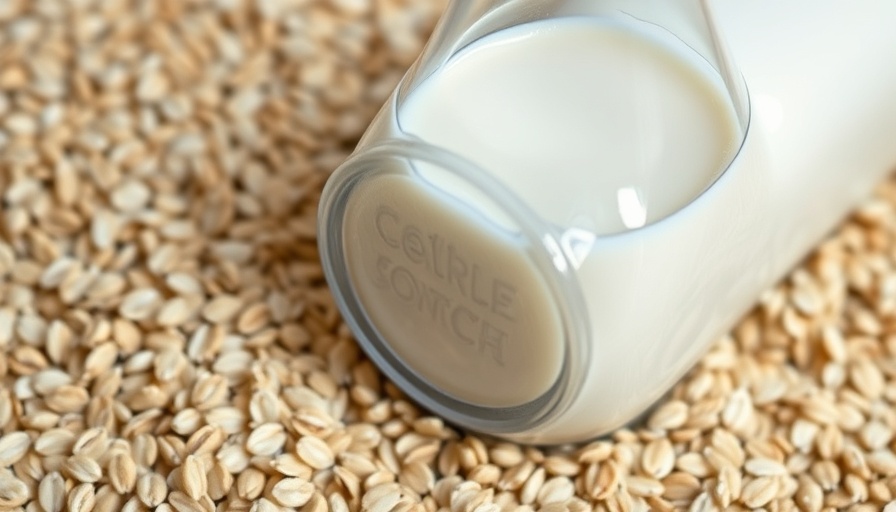
Is Oat Milk Truly Good For You? The Pros, Cons, and What You Should Know
Oat milk has quickly become a staple in coffee shops and homes across the UK, often lauded as a better choice than traditional dairy. But has this milk replacement earned its stripes as a healthy alternative? To answer that, we need to consider its nutritional benefits, potential drawbacks, and how it compares with other options.
The Rise of Oat Milk: A Trendy Alternative
Oat milk has gained significant traction in recent years, positioned as a health-conscious alternative to dairy. A report states that one in four coffees sold at major chains is made with plant-based milk, with oat milk leading the way. Research by Kantar illustrates this trend, showing oat milk sales climbed 7.2% in the last year alone, showcasing its popularity amidst the advent of other plant-based alternatives.
Understanding the Sugar Content
One major talking point around oat milk is its sugar content. While oats are a nourishing wholegrain, the process of creating oat milk breaks down some carbohydrates into simpler sugars, which can elevate blood glucose levels more than one might expect. Some commercial brands may include additives like oils and gums, which some consumers might want to avoid due to potential sensitivities. For instance, some varieties can contain up to 10 grams of sugar per 250ml serving, similar to that of a biscuit.
Comparing Oat Milk with Other Dairy Options
When considering oat milk in relation to other milk alternatives, it’s important to note that its carbohydrate content can be higher than that of regular milk. Yet, the blood glucose response is somewhat similar to that of lactose, the sugar found in cow’s milk. Therefore, if you’re consuming oat milk primarily in small doses within coffee, it’s largely unlikely to cause significant spikes in blood sugar, thus making it an acceptable option for most.
Nutritionist Insights: Is Oat Milk Safe for You?
Nutritionist Ruby Chauhan points out that while concerns exist regarding ingredients like rapeseed oil, commonly found in barista oat milk, these oils are misconstrued as 'toxic.' Rich in monounsaturated fats, they provide benefits that surpass the fears instilled by sensational media reports. However, it’s essential to remain informed about ingredients that may not suit everyone’s health needs.
How to Choose the Right Oat Milk for You
As you explore the oat milk options available, it's crucial to read labels carefully. Opting for products labeled 'unsweetened' is often better, but remember that even these can contain malted oats that release their natural sugars. This makes it vital to be aware of your personal health circumstances, whether that’s managing blood sugar levels or addressing hormone imbalances.
The Future of Oat Milk: A Sustainable Choice?
Beyond nutritional content, oat milk holds significance in the larger discussion of sustainability. Oats require less water to produce than almond milk and can significantly reduce environmental impacts compared to dairy farming. As consumers become increasingly aware of sustainability and health benefits, oat milk stands out as a winner in the ongoing debate of food choices.
Conclusion: What Does This Mean for You?
Oat milk presents a tasty, ethical, and often nutritious dairy alternative; however, it’s essential to consume it mindfully, considering its sugar content and additives. By staying informed and making choices that align with your health needs, oat milk can indeed be part of your balanced diet.
 Add Row
Add Row 

 Add Element
Add Element 


Write A Comment